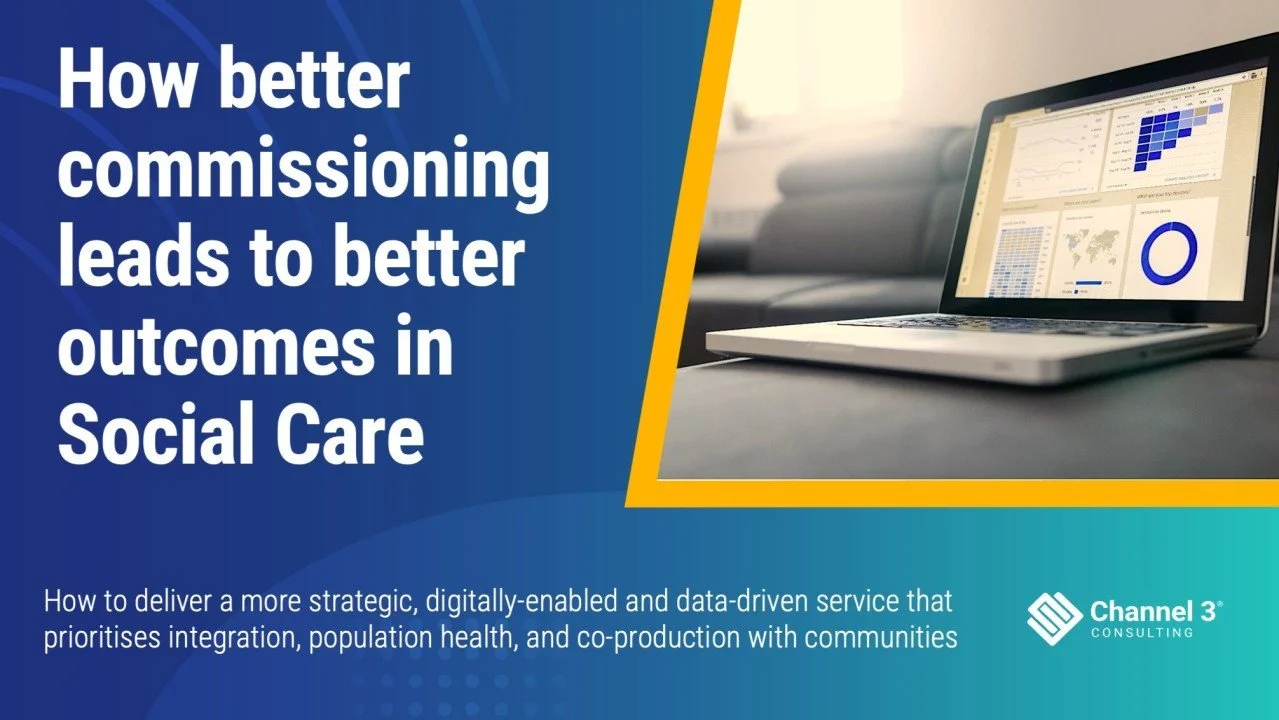
Thought Leadership
In sectors as dynamic and challenging as Health and Social Care, no one has a monopoly on wisdom. Our experience, working with inspiring customers on difficult business problems, gives us a privileged view of the sectors that few others have.
This section has some of our latest thinking around how positive change can be made, and indeed how we are making it. This is the basis of our grounds for optimism in both sectors.
Below you can read our articles, written by our expert consultants and some of our customers, that might help you as you tackle some of the same problems we have.
For more details or to discuss anything you see here, please contact a member of the team.
Use the dropdown below to filter our articles by topic
Co-production for innovation | it starts with relationships, not roadmaps
Co-production Week isn’t just a celebration of values, it’s a call to action for how we actually design and deliver change.
For innovation to take root in adult social care, it can’t be imposed from the top down or rolled out in isolation. It needs to be shaped by the people who live it every day. That means moving beyond consultation and into true co-production, built on trust, shared purpose, and honest relationships.
Spending Review 2025: A defining moment for digital health and government
On the face of it, this week’s Spending Review (11 June 2025) delivers a clear message: digital transformation isn’t just a pillar of healthcare, it’s a priority across government, and it’s being backed with record levels of investment.
The Digital Blueprint: Cause for optimism in Social Care
Find out how our digital blueprint for social care leads to better outcomes for citizens, more time for staff and significant savings for councils.
Long-Term Care: Unlocking Better Support Through Digital Innovation
In this piece, we focus on short term support — how digital solutions can improve the quality and effectiveness of short-term support, driving better outcomes for people receiving it.
From Local Government to Consultancy: My Journey in Adult Social Care
Natasha Pow recently joined Channel 3 after an illustrious career in local government. Here she tells us her journey and what inspired her to make the move.
Short Term Support: Embracing digital to empower independence
In this piece, we focus on short term support — how digital solutions can improve the quality and effectiveness of short-term support, driving better outcomes for people receiving it.
Unpaid Carers: Unlocking Better Outcomes with Better Tools
In this piece, we focus on unpaid carers – exploring how digital tools can be used to help our valuable unpaid carers live a good life, despite the everyday difficulties they face.
Rethinking the Front Door to Adult Social Care
In this piece, we focus on the front door to adult social care – exploring how digital tools are enabling people, families, carers, and professionals to access the right information and support when they need it – at their first point of contact with social services.
Operations: Unlocking Better Outcomes with Better Tools
In this article, we explore how systems can drive the shift from a reactive to a strategic commissioning model powered by key digital interventions - enabling more proactive, outcomes-driven approaches to meeting people's needs.
Commissioning: Unlocking a Data-Led, Digitally Enabled Future in Adult Social Care
This article is part of our Digital Blueprint for Adult Social Care, a series exploring how technology and cultural change can come together transform services. In this article, we explore how systems can drive the shift from a reactive to a strategic commissioning model powered by key digital interventions - enabling more proactive, outcomes-driven approaches to meeting people's needs.
Turning a health and social care digital blueprint into reality
How do we truly utilise the power of digital technology to transform health and social care? Channel 3’s Ralph Cook brought together adult social care and health leaders at the ADASS Spring Seminar to discuss the way ahead.
Digital social care: What does good looks like for adult social care?
People need joined-up services, that are designed to work together, to help them face complex societal challenges. Joining up is difficult because staff can lack the data, tools, skills and capacity to deliver the quality of services that they aspire to. Nowhere is this truer than in adult social care (ASC), where pressure on staff is huge and the opportunity to alleviate some of that, using a digital approach has not yet been taken.
Contact us
If you would like one of our team to get in touch, please fill out your details below.











